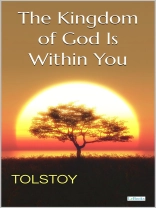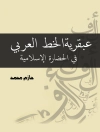The Kingdom of God Is Within You is a profound exploration of nonviolence, personal conscience, and the moral implications of Christian teachings. Leo Tolstoy critiques institutionalized religion and state authority, arguing that true Christianity lies in individual spiritual transformation rather than external dogma. Through a rigorous examination of history, philosophy, and theology, the book challenges readers to reconsider their complicity in systems of oppression and to embrace a radical ethic of love and resistance to violence.
Since its publication, The Kingdom of God Is Within You has been recognized as one of Tolstoy's most influential philosophical works. Its advocacy for nonviolent resistance inspired key figures such as Mahatma Gandhi and Martin Luther King Jr., reinforcing its legacy as a cornerstone of pacifist thought. The book's exploration of the tension between personal conviction and societal demands continues to resonate, offering a powerful critique of coercion and moral compromise.
The work's enduring relevance lies in its ability to challenge readers to confront ethical dilemmas in their own lives. By examining the intersections of faith, justice, and individual responsibility, The Kingdom of God Is Within You invites reflection on the transformative power of moral courage and the potential for spiritual and social change.
Über den Autor
Leo Tolstoy (1828-1910) was a Russian writer, widely recognized as one of the greatest novelists of all time. Born into an aristocratic family in Tula, Russia, Tolstoy is known for his epic works that explore themes such as war, morality, human nature, and spiritual redemption. His novels, particularly War and Peace (1869) and Anna Karenina (1877), are considered masterpieces of world literature, offering deep psychological insight and a panoramic view of Russian society.
Tolstoy's literary career began with Childhood (1852), the first in a trilogy of autobiographical novels. His experiences in war inspired Sevastopol Sketches (1855), a realistic depiction of battle and human suffering. However, his greatest contributions to literature came with War and Peace and Anna Karenina.
Tolstoy's influence extends far beyond literature. His philosophical and religious writings challenged institutional authority and inspired social movements. His works continue to be studied and admired for their exploration of human emotions, ethical dilemmas, and historical events.
Tolstoy's narrative style, characterized by psychological realism and intricate character development, set a new standard in literature. His ability to depict the inner struggles of his characters, combined with his vast historical scope, established him as a literary giant.












